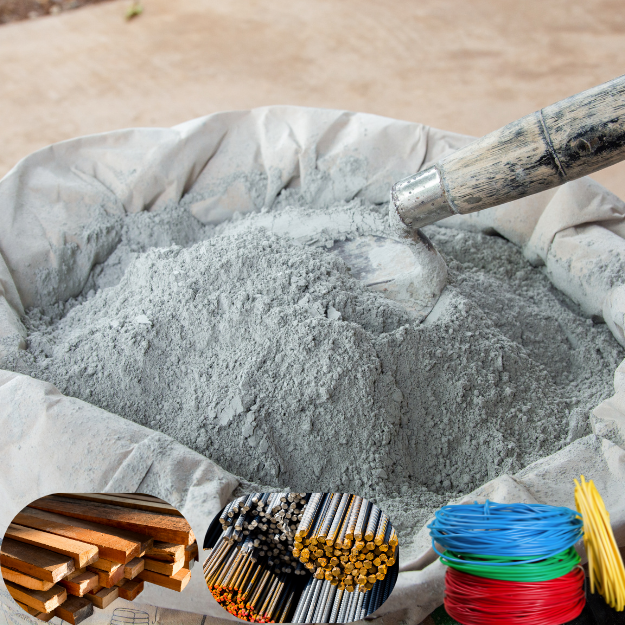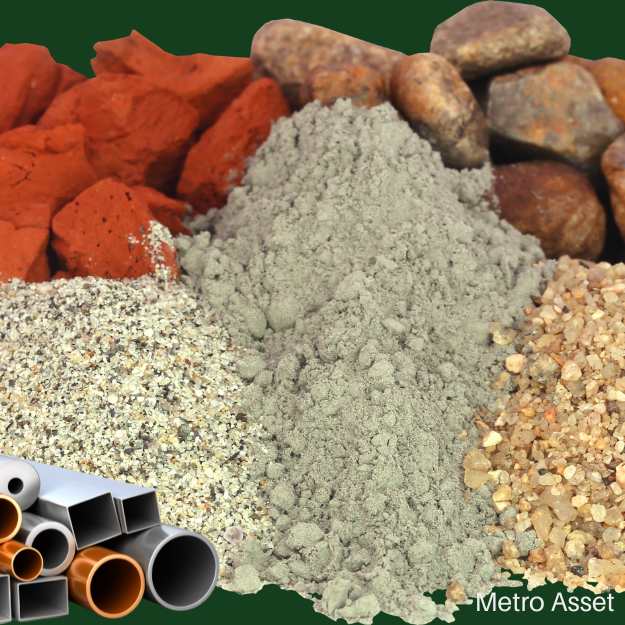Nigeria’s real estate sector has long faced challenges related to the cost and availability of building materials. However, recent global conflicts, including the Russia-Ukraine war and tensions in the Middle East, have exacerbated these issues, leading to skyrocketing prices and project delays. Lagos, Nigeria’s economic hub and a hotspot for real estate development, has been particularly affected. This article explores the challenges of sourcing building materials in Nigeria and how global instability is disrupting major construction projects in Lagos.
The Rising Cost of Building Materials
Over the past few years, Nigeria has struggled with inflation in the construction sector due to factors such as:
- Foreign Exchange Volatility – The depreciation of the naira against the dollar has made imported materials significantly more expensive.
- High Import Dependence – Nigeria relies heavily on imported cement, steel, aluminum, and roofing sheets, leaving the market vulnerable to global supply chain disruptions.
- Local Production Challenges – Despite having cement manufacturers like Dangote and Lafarge, issues such as energy costs, logistics, and regulatory bottlenecks hinder full self-sufficiency.
The Russia-Ukraine war worsened the situation, as both countries are major exporters of steel, aluminum, and other raw materials. Sanctions and supply chain disruptions led to price surges, with steel prices increasing by over 60% in 2022 alone.
Impact of Global Conflicts on Lagos Construction Projects
Lagos, with its rapid urbanization and high demand for housing and commercial properties, has been hit hard by these material shortages. Key impacts include:
1. Delayed and Abandoned Projects
Many developers in Lagos have been forced to slow down or halt construction due to unaffordable material costs. High-rise buildings, luxury estates, and infrastructure projects face extended timelines, increasing financing costs and reducing investor confidence.
2. Increased Housing Costs
The rising cost of materials has directly translated to higher property prices. Affordable housing projects, which were already struggling, are now even more difficult to execute, worsening Lagos’ housing deficit.
3. Shift to Alternative Materials
Some developers are turning to cheaper, locally sourced alternatives like bamboo and compressed earth blocks. However, these materials often lack the durability and acceptance needed for large-scale projects, limiting their widespread adoption.
4. Dependence on Smuggled and Substandard Products
Due to high costs, some builders resort to smuggled or substandard materials, compromising structural integrity and increasing the risk of building collapses—a recurring issue in Lagos.

Government and Industry Responses
To mitigate these challenges, stakeholders are exploring solutions such as:
- Boosting Local Production – Encouraging investment in local manufacturing of key materials like tiles, glass, and roofing sheets.
- Import Substitution Policies – Government incentives for companies producing building materials domestically.
- Infrastructure Development – Improving roads and ports to reduce logistics costs.
However, progress has been slow, and without urgent intervention, Lagos’ real estate growth may continue to suffer.
Conclusion
The Nigerian construction sector, particularly in Lagos, is at a crossroads due to the rising cost and scarcity of building materials. Global conflicts have intensified these challenges, leading to project delays, higher housing costs, and increased risks of substandard construction. While local production and policy reforms offer hope, immediate action is needed to stabilize the market and sustain Lagos’ position as Nigeria’s real estate powerhouse.
For developers and investors, adaptability and long-term planning will be key to navigating these turbulent times



